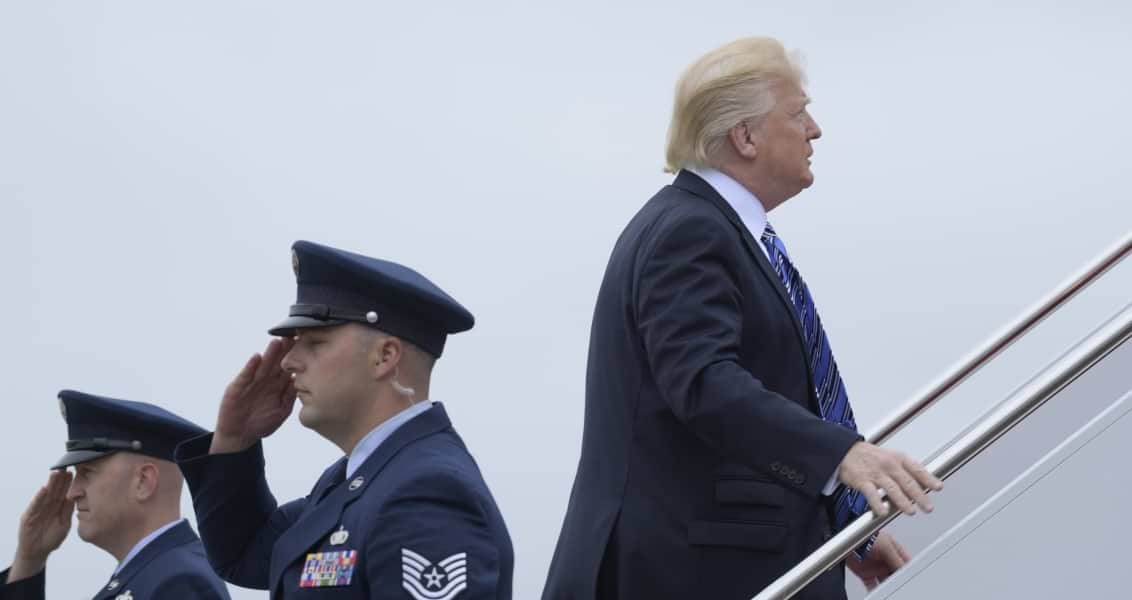
Trump Must Change YPG Policy before It Is Too Late
The U.S.'s official support to the Syrian militant group is likely to c ause real tension at the Erdoğan-Trump meeting
Share
There have been a variety of crises in Turkish-American relations recently. At the height of the Cold War, relations went sour due to disagreements regarding the Cuban Missile Crisis and later with the Johnson letter during the Cyprus dispute. Years later, the the disagreements between the two countries mainly took place in the Middle East. The unfulfilled expectations of Turkey after its major support of the U.S.-led international coalition against Iraq during the Gulf War and the March 1 crises in 2003 before the U.S. invasion of Iraq were all significant choking points in the bilateral relations between the two countries.
Although all of these crises in the long history of relations have left scars on the mutual trust of the two countries, efforts have been made to fix the strains in one way or another. However, the recent crises started and escalated as a result of the Obama administration's policy of arming the PKK-affiliated People's Protection Units (YPG) in northern Syria, a move that may even have generational repercussions at the public level in Turkey. Directly arming a branch of a terrorist group that organizes terrorist attacks against the citizens of a NATO ally will be difficult to explain regardless of its main motivation.
From the very beginning, the arming and training of the YPG against Daesh was a risky move, and it was a policy that would have serious repercussions for the countries' bilateral relationship. From very early on, the Turkish government stressed the risks of supporting one terrorist organization to fight another. However, the U.S administration considered the group "reliable partners" on the ground and expanded its support for the group following the Kobani crises. Anyone living in the region is aware of the organizational and ideological connection between the PKK and the YPG, and they also know that the YPG's recruitment activity in Turkey is run by the PKK. In fact, the overlap among the recruited members of these groups leaves no doubt about the overlap. However, despite this undeniable evidence, the U.S. has continued its support for the organization. The YPG's increasing power and legitimacy, and the reflection of this in the region, did not change the U.S.'s attitude. The YPG was not fighting on behalf of its own interests, which came at the expense of all groups in the region. The demographic engineering of kicking out the local Arab and Turkoman residents, and its stated goal of establishing a region under its sole autocratic control, did not bring change to U.S. policy. In the absence of a policy in Syria and the counter-terror strategy taken against Daesh, the Obama administration considered the operational outcome of the heavily supported YPG a strategic tool. Turkey's concerns in regards to the empowerment of a terrorist network along its border were not heeded by the U.S. administration. The idea of the YPG as the only solution against Daesh turned out to be the main talking point for the country with the most powerful army in the world. So far, there has been no statement in regard to the plan concerning the YPG, while, at the same time, some from the U.S. administration continue to act like a public relations staff for the YPG. As a result, the realities on the ground are about to haunt the U.S.'s policy in the region. The ethnic tension that was generated by the ultranationalist discourse and the policies of the YPG in the region, along with ambivalence about the future of the cities and towns captured by the YPG and the uncertainty about the U.S.'s exit strategy in regards to engaging the YPG, are about to generate a very dysfunctional U.S. policy for the future of Syria.
Through the direct military assistance of the U.S. administration to the YPG, a new threshold has been passed. With this help, the old U.S. administration demonstrated that the new administration still did not have a chance to think through the future of the U.S. policy in the region. Taking this step in order to defeat Daesh may seem like a temporary move for the U.S. administration, which is probably planning to leave the region as soon as possible, however, for the people who will face the risks of the emerging ethnic fault lines in their societies, and the people who may have to face the terrorism of a group armed and trained by the U.S., it will be a long journey. These are the people who have to handle the outcomes of this problematic policy in the region. The public reaction for this decision could have significant repercussions for the U.S.'s image and standing in the world.
President Recep Tayyip Erdogan's visit to Washington will take place in the shadow of this situation. As he expressed before starting his trip to China, both the Turkish public and Turkish government expect the U.S. administration to change its decision on this issue before the outcomes of the decision will be too difficult to repair. In this visit, the Turkish delegation will once again express its concerns regarding the YPG, while stressing that the fight against Daesh will be a long one necessitating cooperation in intelligence and security on both sides. Also the conflict in Syria, regardless of the outcome of the operation in Raqqa, also necessitates ongoing cooperation and coordination between the two countries. During this critical junction of bilateral relations, the damage that was done by the previous administration in regards to the Syria conflict needs to be set aside while there is still a window of opportunity to turn this crisis into an opportunity. The meeting on May 16 between the two leaders could be a significant step towards seizing this opportunity.
[Daily Sabah, May 13, 2017]
Tags »
Related Articles







